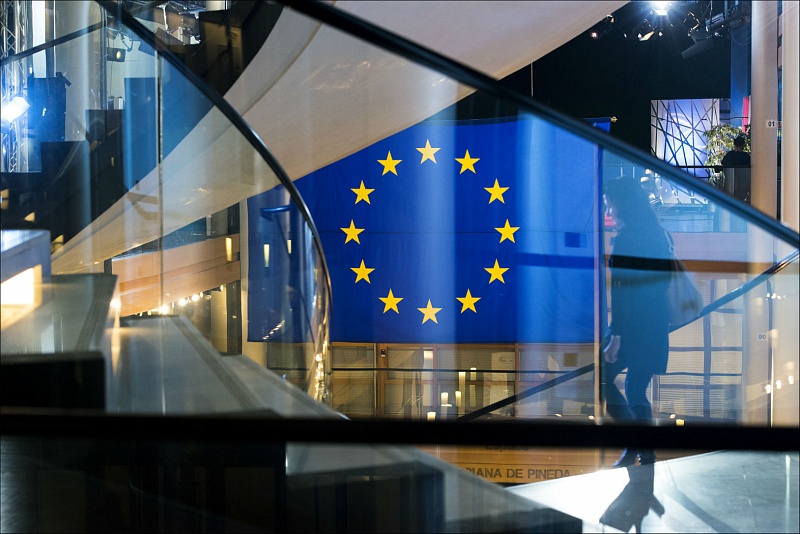The Melian Dialogues of Brussels can be resolved with mutual technological innovation through Brussels
In
Log in if you are already registered
Technology has historically proven to be a unifying power at first for state unification and subsequently for globalization. Today, at times of political discord, technology offers a new opportunity for coming together diplomatically. In order to develop the tools and means of modern states to ensure the human rights of each citizen a cooperation between public and private business is necessary, also bringing together the minds from different countries. First of all, we recall that it is a type of specialization of the products of the mind that different science cultures and national innovation environments create. Interaction between states empowers and accelerates innovation and the application of innovation. It is the law of comparative advantage and the greater scale that facilitates implementation.

It is here that the cooperation between small European states and Russia can begin to reverse the political confrontation between Moscow and Brussels. Recalling how in the past it was the Belgian masons that prior to the October revolution came to lay the stones of Moscow’s Red Square. After Perestroika, it is said that the Antwerp jewelers were invited to participate in the renovation of the Kremlin, and the polishing of the Red Ruby Stars on the Kremlin towers. The technological relationship between Belgians and Russians stretched back to the date that Peter I came to the northern lands and became a Mason. The symbolism of technological cooperation guides the convergence the transfer of know how and cooperation with Russia and Belgium continues and can be intensified. In the decade prior to the Great October revolution more than two hundred Belgian enterprises were registered in Russia whereas the Belgian industrial investment in the Donetsk represented more than half the Russian production in the industrial sphere. According to Belgian Senate archives in 1922, the carbon mined in Russia was equivalent to the production of the Liege province of Belgium. The cast iron produced in Russia by Belgian investment represented a third of the total production in Russia. The beams and rebars produced in Belgium were 42% of the total Russian production. Belgian production in Russia represented 75% of the chemical products made in Russia, glass 50% of Russian production and windows 30%. Belgian companies were particularly interested in the mining sector and metals, with a strong focus and presence in the Donetsk basin. Twenty six Russian cities had tramways and electricity networks functioning with Belgian participation. The industrial development brought patents and knowhow of the factories and process of urbanization. The question of reparations after the First World War was resolved eventually at Genoa culminating with the recognition of the USSR in 1933. During the Soviet era Belgium continued to participate by for instance sharing know how in production lines. Prominent Belgian socialists, such as, VanDerVelde chairman of the International Headquartered in Brussels were introduced as negotiators with the Bolshevik government. The heightened cooperation usually peaks in industrial achievement in a particular technological era, and prior to a tremendous polity innovation or transformation.
In the current decade Belgium and Russia have signed eighteen technology projects with government agreement. Cooperation between the foremost universities continues. The year 2000 was also marked the signing of a new era of Russian Belgian cooperation in Space. Looking towards the horizon it becomes evident that we are approaching precisely this moment when the new fourth industrial revolution creates the incentives and momentum for mutual cooperation. When the technological innovation leads to economic cooperation, we will find ourselves on the eve of a great lead in political innovation of the polity. Perhaps the political innovation shall be integration based on the economic normalization of relations. Technological cooperation can lead not only to mutual economic growth, but also to cooperation in military procurement and navigation infrastructure. Such a multi vectored technological cooperation from Space to energy saving windows could be the first steps to realizing the joint the European defense treaty or to establish the terms for a practical Russia Nato council. It is ultimately a matter of political will and decision. The only danger comes from its non realization. As we are now well aware the sequencing of integration from the Russian perspective is defense, gradual rounds of trade liberalization and with a climax of the energy union or liberalization. This can be discerned from the sequencing of the Eurasian Union. Europe and the United States are one step behind China in its cooperation with Russia. China began with establishing a mutual defense treaty in the form of the Shanghai Cooperation Organization and be agreeing on precise boundaries. Brussels and the EU began the reverse process, disturbing the mutual boundary and stalling the defense cooperation. The West really seems to have missed the opportunity to incorporate Russia into its global governance infrastructure in the 1990s. Russia was entirely willing to do so, the very reason for its decision to embrace democracy and to open its economy and society. Technology cooperation gives a new chance to reset relations. By focusing on the common challenges in innovation we can become economically and politically interdependent, the foundation and consequence of joint defense. The question guiding the cooperation could be How to activate Innovation? Answering the question of How the societies can enrich and empower each other, would create the trust and cooperation necessary to move to mutual defense. In Belgium the approach is still passed on between families and tight historic science cooperation, that are separated by the linguistic and party and religious affiliations. Each of the separate groups then has its own particular international approach and network. This is why the small and modest Belgium has such important programs on the North and South Poles and in Space. At each new opportunity the Belgians are there. In September, Prime Minister Charles Michel announced the new Digital Plan, whereas in 2014 a national cyber security center was established. The opportunity to create joint cyber defense as proposed by Russia internationally is an area that can produce positive results based on the normalization of relations initiated by the Prime Minister in January. The visit by Antwerp mayor, a prominent Flemish politician, to Saint Petersburg in September was followed by the arrival the Mayor of Saint Petersburg to the twin city of Antwerp in September. The two urban centers have agreed on a five year program of Smart Cities.The local subnational organizations are as significant as the EU context that is providing new directives and additional funding for establishing EU wide networks of innovation hubs connected by high speed internet. The question common to both peoples if how to innovate. It continues to be a constructive dialogue to discuss technology, despite confrontations in the original petroleum based political economy.
Observing the pattern of foreign policy changes reveals a correlation with the technological eras. The foreign policy can be understood through the technological eras. Becoming conscious of this enables the policy makers to take a joint decision to develop the positive aspects of the new technologies from biomedical to energy storage to space navigation and sensors. The Ukraine crisis sabotaged the entire coming together of Brussels and Moscow. Can Belgium play the role of conducting a Melian dialogue with the superstructure of Brussels EU leadership? The role of small powers like Belgium and Bulgaria in introducing the Russians as trustworthy partners if important. The aim of Moscow is the European Defense Treaty with Brussels, wherein Kiev and European capitals shall be part of the safe environment of Eurasia. Moscow seeks not direct alliance with Kiev alone. First, however, the rounds of economic and academic cooperation should be used to temper and rationalize the media coverage of the states. Perhaps the crisis in Donetsk gives an incentive for the increasingly diverging centers of European and Eurasian power to sit and discuss the terms of future cooperation. Technology is the first step of this cooperation between peoples whose histories are more closely intertwined than ever before. Belgium as a model is also particularly characterized by the rising trend of substate entities to legitimately and legally conduct foreign policy in parallel to the state. Belgian foreign policy has five key vectors multilateralism, integration, representation of local multicultual interest, economic diplomacy and science diplomacy. The tapestry of historical links between people before even the modern nation state was established can be continued.
MSc in Political Science, Columbia University
Blog: Anna Maria Rada Leenders' Blog
Rating: 1




